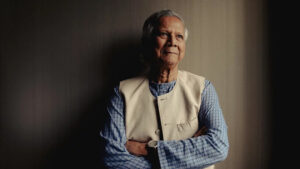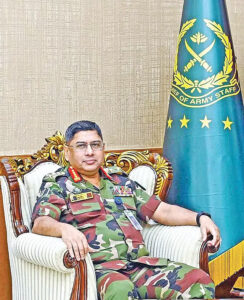This content is restricted to site members. If you are an existing user, please log in. New users may register below.
General Waker’s Paradox: A Pakistan-Style Military Political Role Under Indian Influence in Bangladesh

Reading Time: 5 minutes Bangladesh stands at a critical juncture in its political evolution, facing challenges that threaten its fragile democratic transition and sovereignty. Among these, the role of the military, embodied currently by Chief of Army Staff General Waker-Uz-Zaman, demands particular scrutiny. His recent political manoeuvres, characterised by calls for early elections and intricate political dealings, reveal a complex paradox: General Waker appears to be adopting the historic model of military interference seen in Pakistan—where the armed forces act as kingmakers and gatekeepers of political power—but under the influence and direction of Indian strategic interests. This “Pakistan model” of military-political engagement combined with an “Indian prescription” is a dangerous hybrid that risks undermining Bangladesh’s democratic reforms, sovereignty, and future stability. To fully understand the implications, it is necessary to examine both components of this paradox in detail: first, the nature of military involvement in politics exemplified by Pakistan’s experience,

